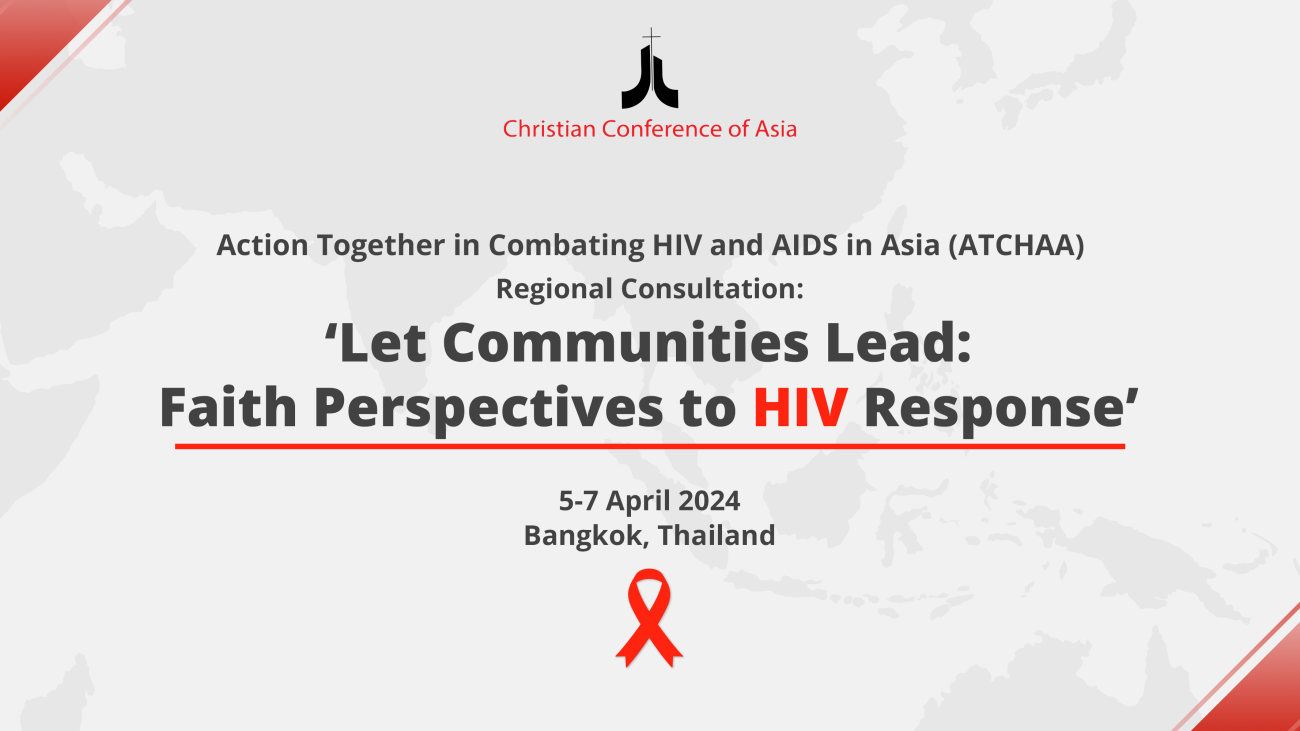CCA ATCHAA Consultation to focus on strengthening role of church and community in Asia’s HIV and AIDS response

Bangkok, Thailand: Maximising the strengths of church and community in the Asian HIV and AIDS response, the Christian Conference of Asia (CCA) will organise a regional Consultation on ‘Let Communities Lead: Faith Perspectives to HIV Response’ from 5–7 April 2024 in Bangkok, Thailand.
The three-day Consultation will bring together 50 participants involved in HIV and AIDS work, including church workers, healthcare workers, People Living with HIV and AIDS (PLHIV) networks, social activists, and representatives of non-governmental organisations (NGOs).
The Consultation will bring back the focus on community-driven responses to HIV and AIDS in collaboration with churches to enhance health outcomes. It will provide a platform for discussion of contextual theological perspectives on health and healing and identification of common strategies for churches, church organisations, and ecumenical institutions to respond to HIV and AIDS, such as prevention, health promotion, reduction of stigma and discrimination, improved care and support, and advocacy at all levels.
The various sessions of the Consultation will emphasise the importance of collaboration between churches and ecumenical organisations with local communities in fostering health-promoting societies, promoting inclusivity and acceptance, and overcoming barriers of stigma, especially in the Asian context.
The CCA’s Action Together in Combating HIV and AIDS in Asia (ATCHAA) programme continues to equip member churches and councils to effectively respond to HIV and AIDS issues, particularly in Asia, which is today home to 6.5 million people living with HIV and AIDS.











